10 Questions Every Beginner Should Ask Their Tarot Deck
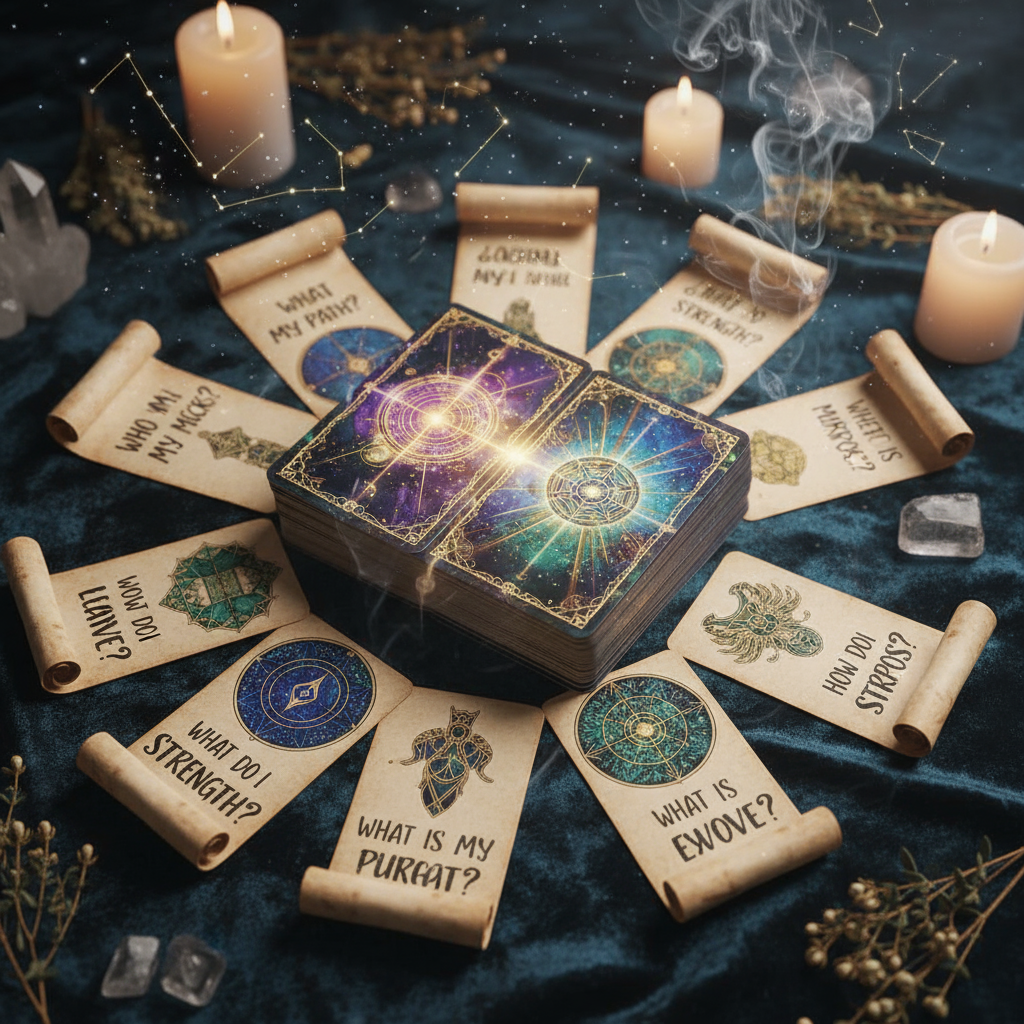 So you’ve got your tarot deck in hand, maybe still smelling like the print shop, and you’re wondering: What on earth do I even ask this thing? Don’t worry—every reader has been there. The truth is, the magic of tarot isn’t just in the cards; it’s in the questions you ask.
So you’ve got your tarot deck in hand, maybe still smelling like the print shop, and you’re wondering: What on earth do I even ask this thing? Don’t worry—every reader has been there. The truth is, the magic of tarot isn’t just in the cards; it’s in the questions you ask.
Most people make the rookie mistake of going straight for: “Will I get the job?” “Does he like me?” “When will I be rich?” Cute, but not exactly the kind of questions tarot loves. Tarot is not a crystal ball that throws you dates and lottery numbers; it is a mirror that reflects to you where you are, and what energy is around you. Ask shallow questions, get shallow answers. Ask smarter questions, and suddenly, the deck feels like it’s whispering secrets you didn’t know you needed to hear.
Let’s break down 10 questions that every beginner can (and should) ask their tarot deck—ones that are open, insightful, and actually useful.
1. What energy surrounds me right now?
 This question is perfect when you are a beginner. Rather than being preoccupied with your future, you are telling the cards to reveal to you the energy of your current moment. It makes you see what you are dealing with--momentum, blocks, blessings--before you take any steps.
This question is perfect when you are a beginner. Rather than being preoccupied with your future, you are telling the cards to reveal to you the energy of your current moment. It makes you see what you are dealing with--momentum, blocks, blessings--before you take any steps.
You may drag a ‘Hermit’ and find that you have been neglecting the necessity of reflection, or ‘The Chariot’, to observe that you already have something pushing you along. Tarot itself does not decide anything; it only indicates what is happening.
2. What’s blocking me from moving forward?
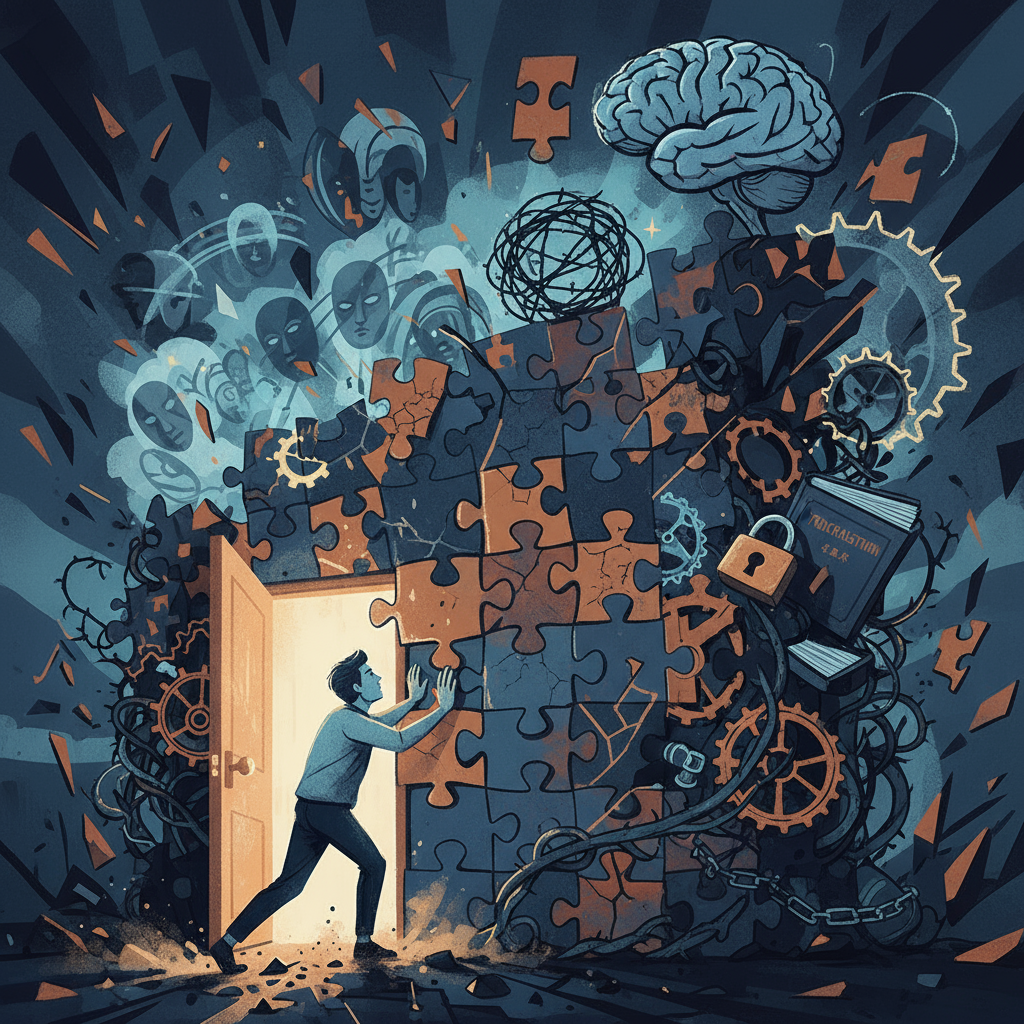 Tarot is the best at shouting what you continue to deny. This question may point to blind spots, self-sabotage, or external forces. Imagine it as telling your deck: What is it that I am stumbling over, which I do not see?
Tarot is the best at shouting what you continue to deny. This question may point to blind spots, self-sabotage, or external forces. Imagine it as telling your deck: What is it that I am stumbling over, which I do not see?
It might be a ‘Nine of Swords' with anxiety, or a ‘Five of Pentacles' with fear of nothingness. These lessons provide you with an opportunity to challenge them directly before decision-making.
3. What lesson am I meant to learn right now?
 Rather than compelling the deck to spill around with respect to when something will occur, it causes the emphasis to be on why. Each reading becomes more of a lesson when you put yourself into it.
Rather than compelling the deck to spill around with respect to when something will occur, it causes the emphasis to be on why. Each reading becomes more of a lesson when you put yourself into it.
A ‘Temperance’ perhaps displays the significance of being patient. A ‘Tower’ might show you it is time to welcome change. Tarot does not so much predict what will happen in your life; it reveals the wisdom that is contained within the journey you are going through.
4. How can I best take care of myself?
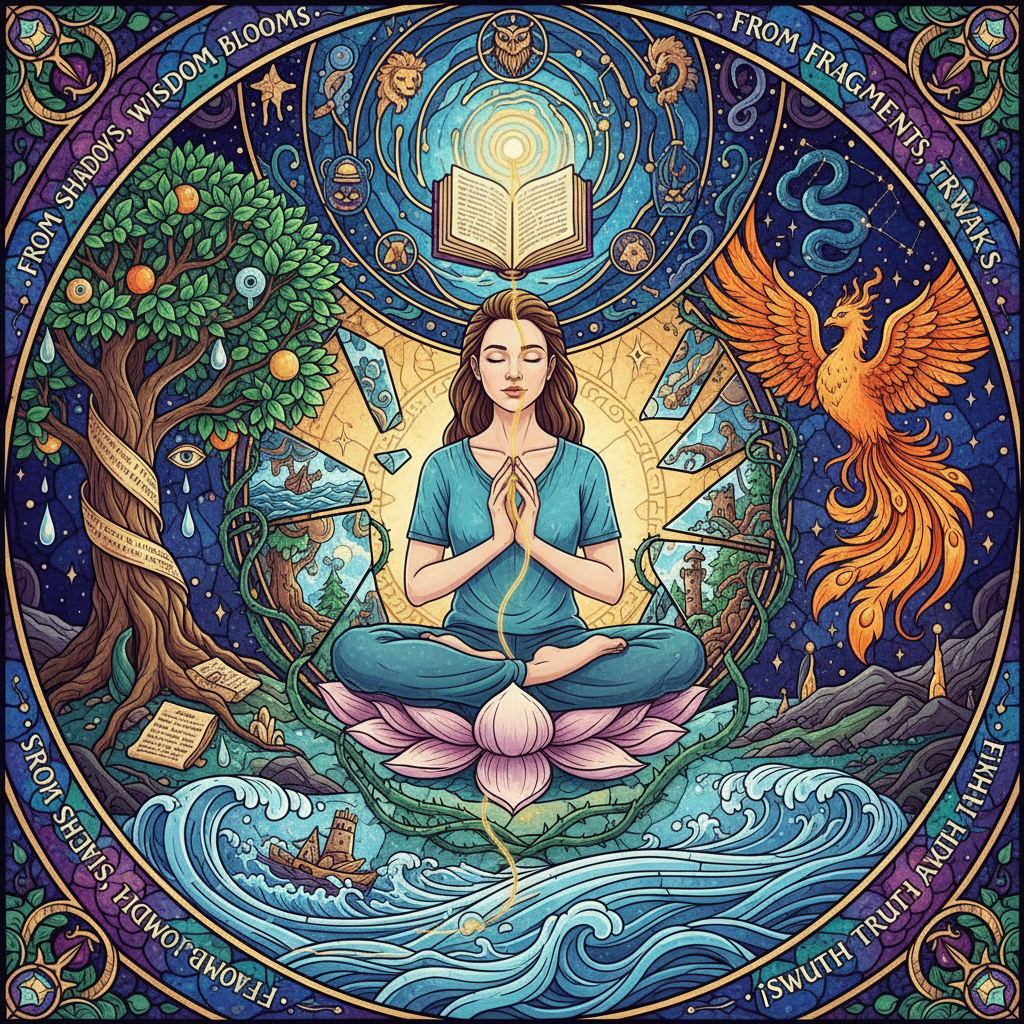 A self-care check-in cannot fail. This is not merely a fluffy question; but it is a grounding question. Tarot will tend to show where you have been over-exerting yourself, or where you have been neglecting your own needs.
A self-care check-in cannot fail. This is not merely a fluffy question; but it is a grounding question. Tarot will tend to show where you have been over-exerting yourself, or where you have been neglecting your own needs.
As an example, a ‘Queen of Cups’ would indicate that you need to be kind to your feelings, and ‘the Hanged Man’ would indicate that you need to take a break or a rest. This question reminds amateurs of the fact that tarot may be used to direct personal well-being, not only outside events.
5. What do I need to release?
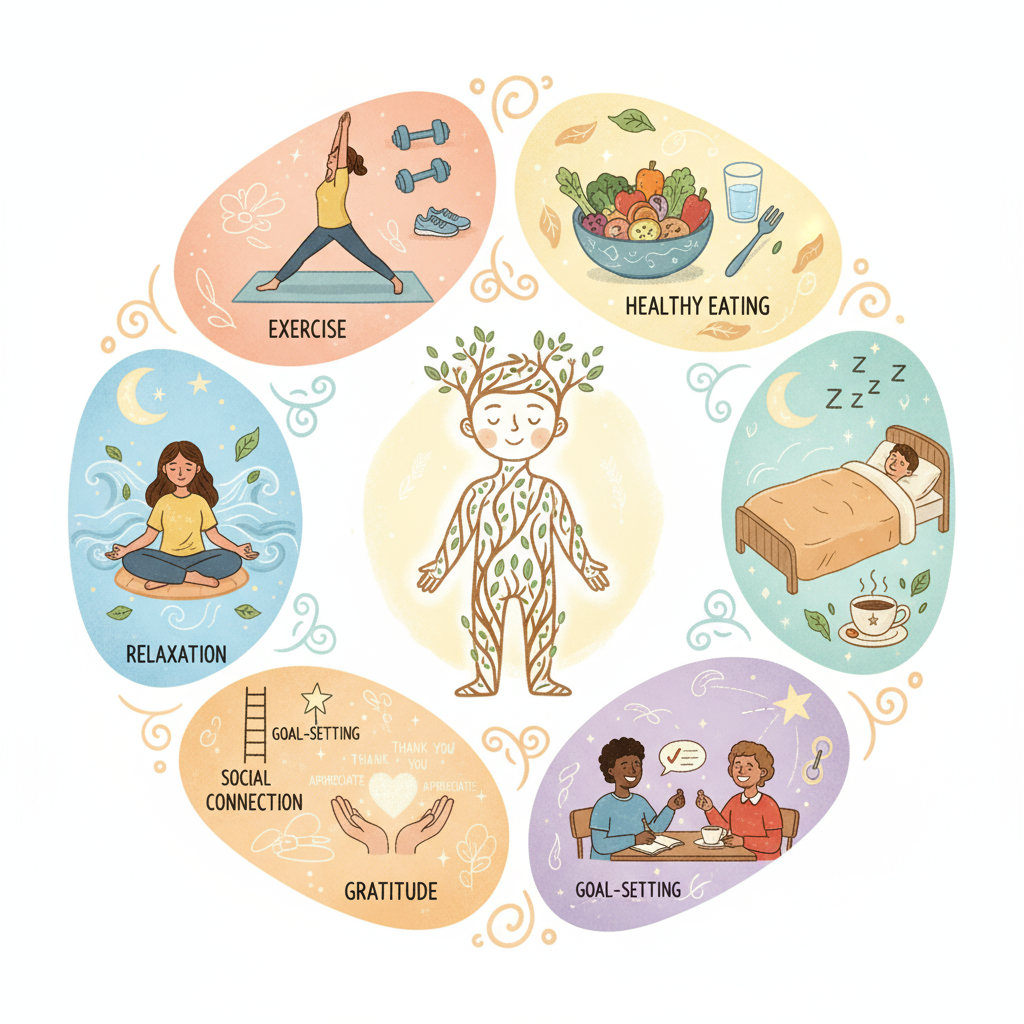 You don't have to hold onto the things that are not right and distract your course. This inquiry asks the deck to highlight the dead weight you are carrying, whether it is past fears, bad relationships, or beliefs. Your deck can reveal a ‘Ten of Swords’, which announces terminations, or ‘The Devil’, which points at patterns that you are prepared to violate.
You don't have to hold onto the things that are not right and distract your course. This inquiry asks the deck to highlight the dead weight you are carrying, whether it is past fears, bad relationships, or beliefs. Your deck can reveal a ‘Ten of Swords’, which announces terminations, or ‘The Devil’, which points at patterns that you are prepared to violate.
Releasing is not enjoyable, yet in many cases, there is a need to make space to develop, which most tarot teachers and psychological studies of introspection affirm.
6. Where should I focus my energy next?
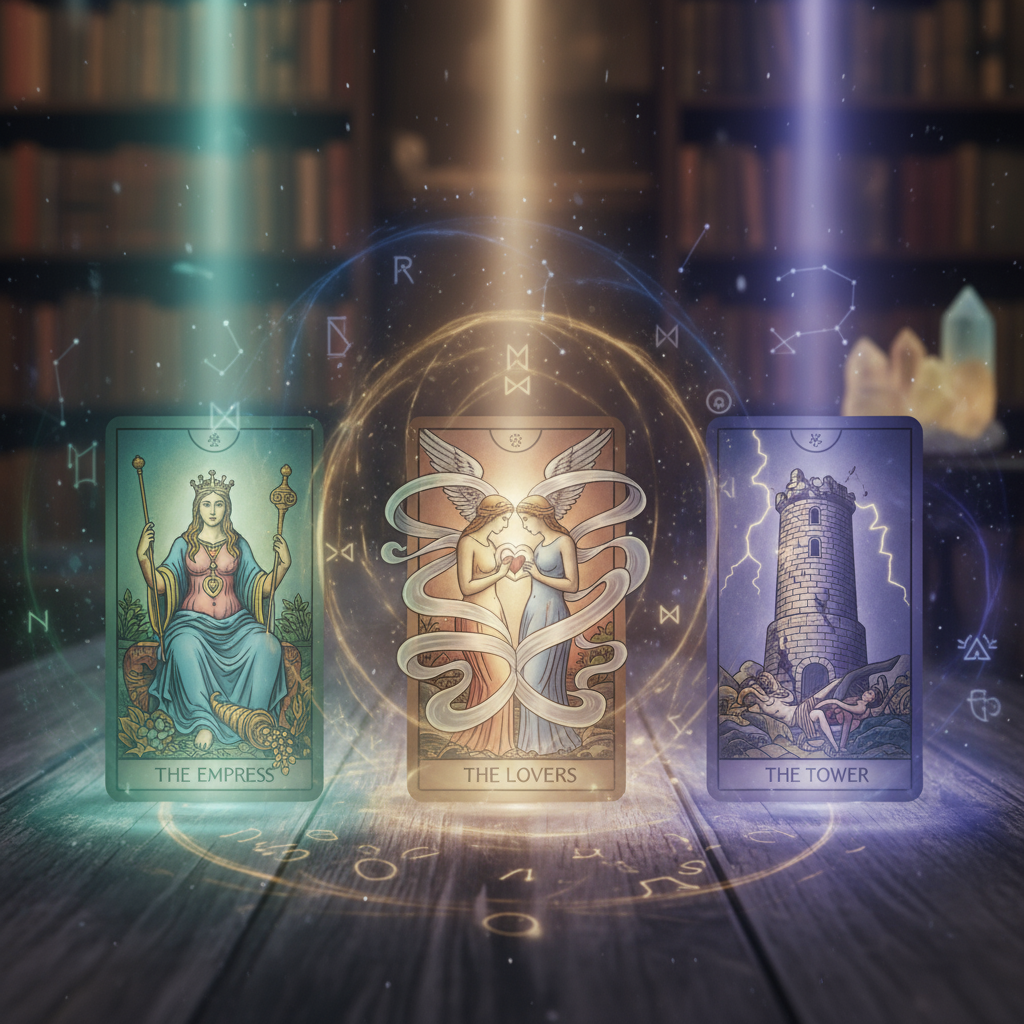 Life gets noisy, and distractions pull you in every direction. This question cuts through all that, helping you zero in on what truly matters right now. Instead of spreading yourself thin, tarot points you toward the areas of life that deserve your attention most.
Life gets noisy, and distractions pull you in every direction. This question cuts through all that, helping you zero in on what truly matters right now. Instead of spreading yourself thin, tarot points you toward the areas of life that deserve your attention most.
For example, pulling ‘The Sun’ may suggest leaning into joy, creativity, and self-expression. On the other hand, ‘Ace of Pentacles’ could be urging you to take practical steps, embrace fresh opportunities, or invest energy into building long-term stability. For beginners, this is a powerful reminder: tarot isn’t here to add chaos—it’s here to give clarity.
7. What strength can I lean on right now?
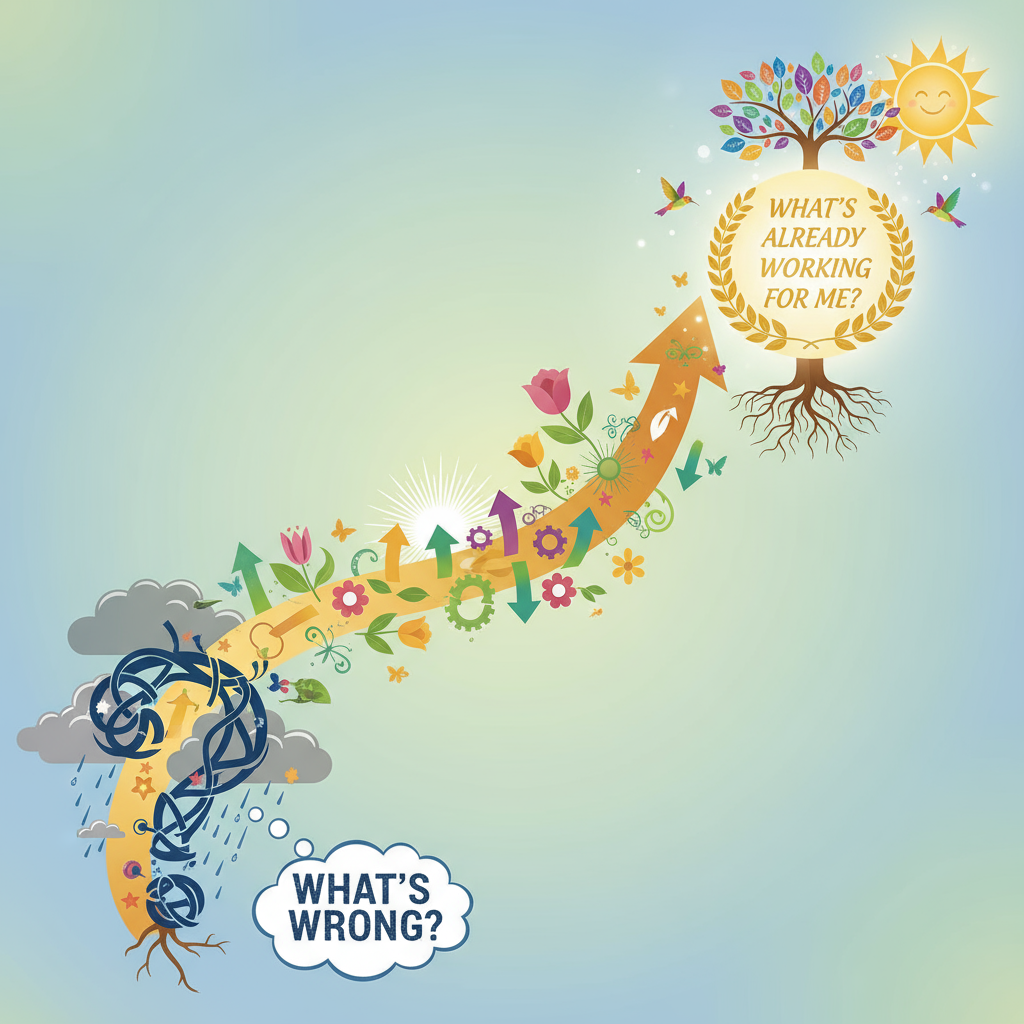 Not all the readings concern issues. This one brings into focus your internal resources. ‘Strength’ cards will help you remember that you already have the tools of resilience, patience, and courage. Pulling ‘The Magician’ is an indicator of resourcefulness – you possess it, you just must put it into action.
Not all the readings concern issues. This one brings into focus your internal resources. ‘Strength’ cards will help you remember that you already have the tools of resilience, patience, and courage. Pulling ‘The Magician’ is an indicator of resourcefulness – you possess it, you just must put it into action.
By asking this, you shift your reading from “what’s wrong?” to “what’s already working for me?” This makes newcomers feel empowered, as they might feel overwhelmed by the unknown.
8. What’s the potential outcome if I stay on this path?
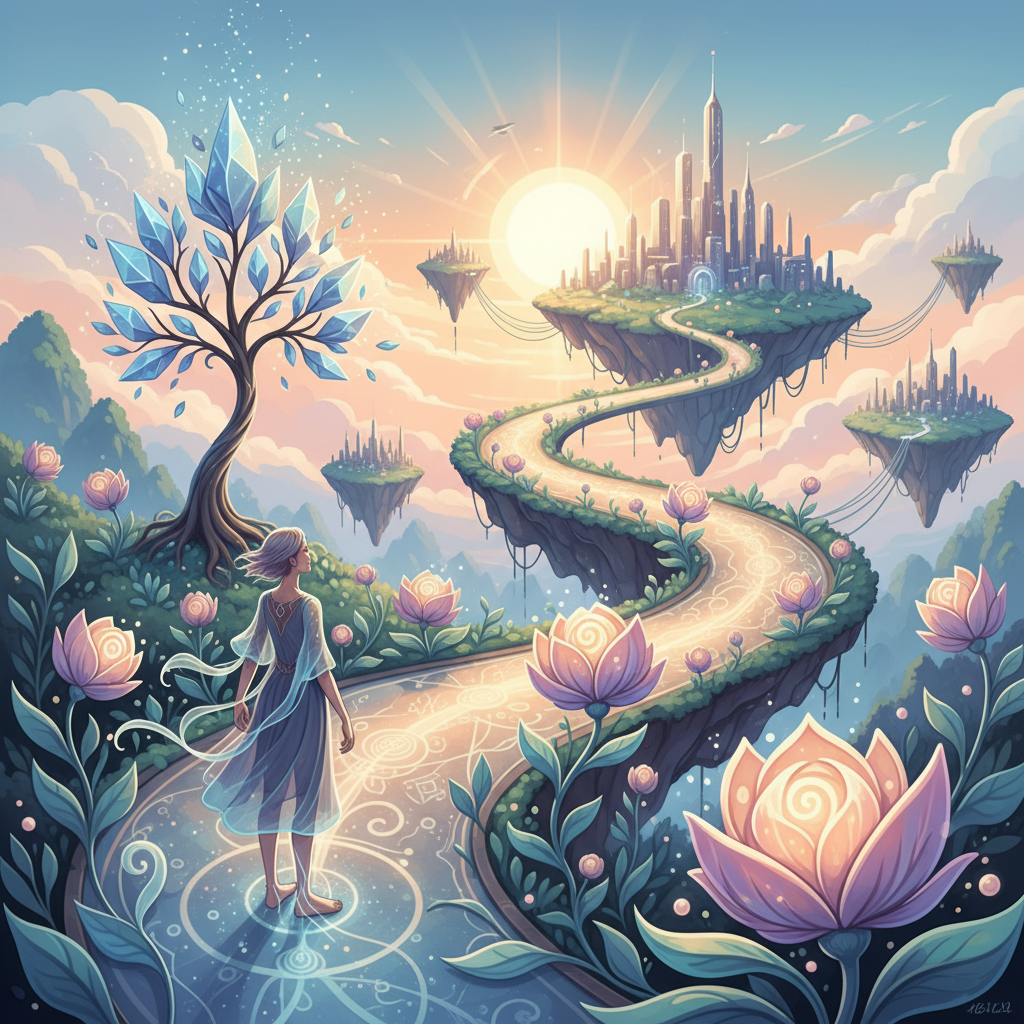 Do not confuse this with asking “what will happen?” Tarot isn’t fatalistic—it doesn’t lock you into a single, unchangeable outcome. Instead, it shows possibilities, energies, and patterns that may unfold depending on the choices you make. The phrasing matters because it leaves space for free will rather than binding you to a set destiny.
Do not confuse this with asking “what will happen?” Tarot isn’t fatalistic—it doesn’t lock you into a single, unchangeable outcome. Instead, it shows possibilities, energies, and patterns that may unfold depending on the choices you make. The phrasing matters because it leaves space for free will rather than binding you to a set destiny.
For example, ‘Wheel of Fortune’ might highlight cycles and transitions already in motion, while ‘Judgment’ can signal a moment of reckoning, awakening, or recognition in the future. Tarot isn’t directive—it doesn’t order you around. It’s predictive, offering glimpses of potential paths while leaving you in the driver’s seat.
9. What should I invite more of into my life?
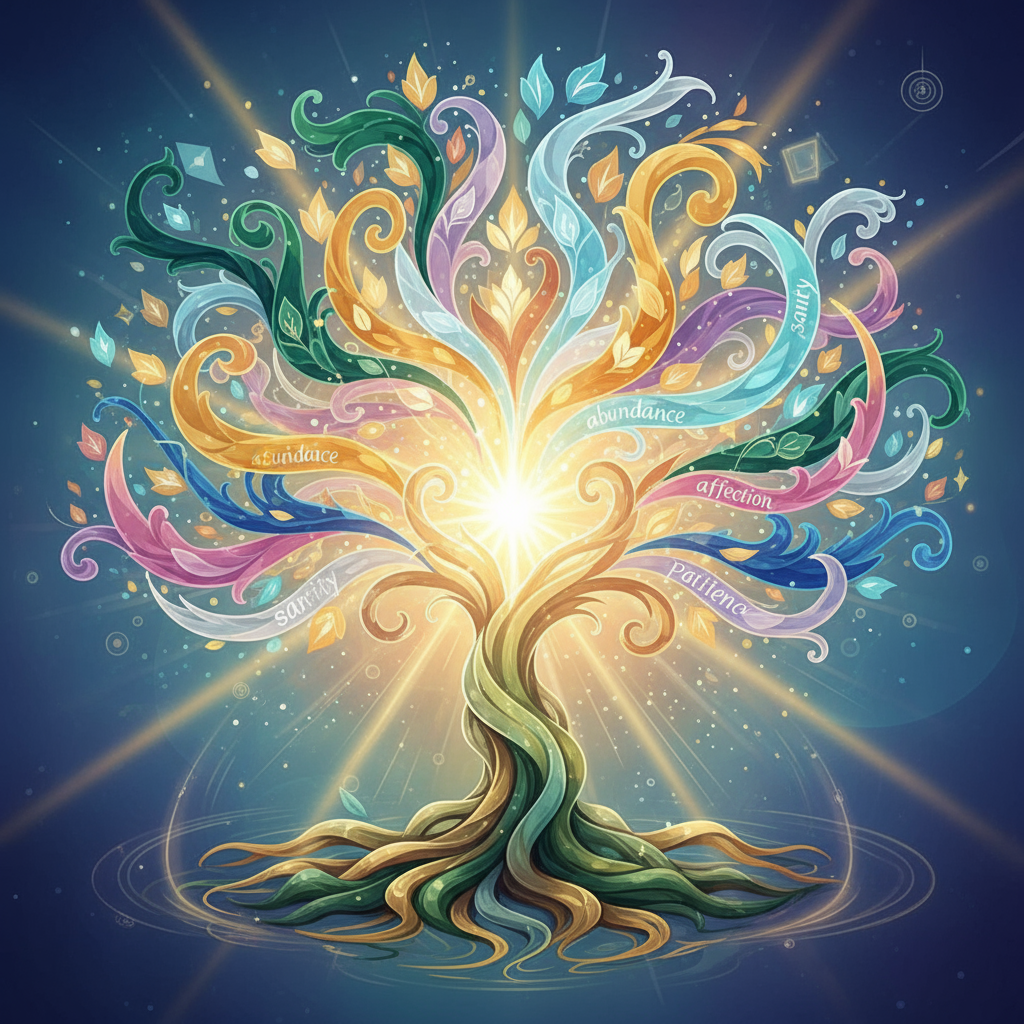 Abundance, affection, patience, sanity—whatever you’re ready to grow. When you ask this kind of question, the energy shifts. Instead of reacting to problems, the deck responds with possibilities. It becomes about expansion, not just fixing what’s broken.
Abundance, affection, patience, sanity—whatever you’re ready to grow. When you ask this kind of question, the energy shifts. Instead of reacting to problems, the deck responds with possibilities. It becomes about expansion, not just fixing what’s broken.
For example, ‘Ace of Cups’ may point toward emotional growth and deeper connections, while ‘The Star’ shines as a symbol of hope, renewal, and faith in what’s ahead. This is a powerful lesson for beginners: tarot isn’t just about navigating challenges—it’s also about unlocking opportunities and guiding you toward what you can create.
10. What message does the universe have for me right now?
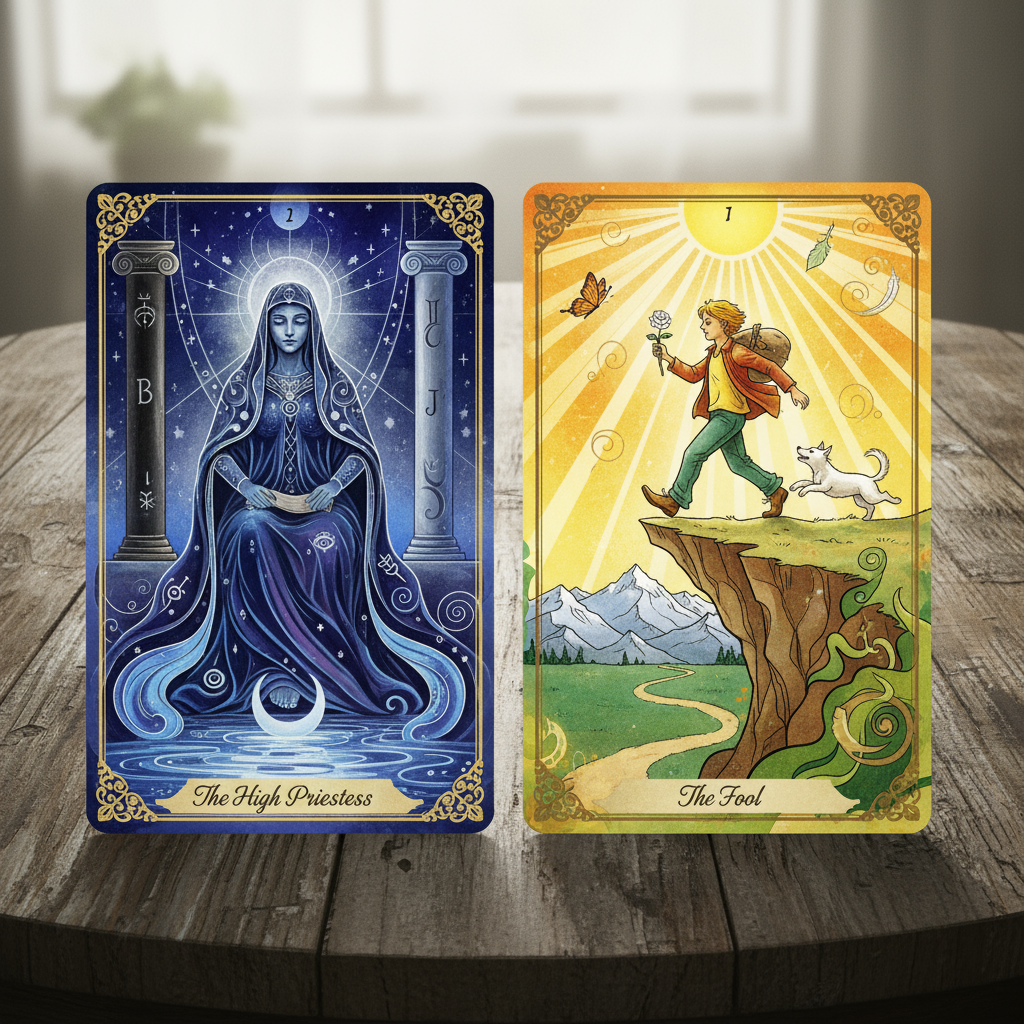 When in doubt, ask the simplest, most powerful question. This is the ultimate catch-all, the one that never fails to cut through overthinking. Sometimes the clearest answers come when you stop complicating things and just let the cards speak.
When in doubt, ask the simplest, most powerful question. This is the ultimate catch-all, the one that never fails to cut through overthinking. Sometimes the clearest answers come when you stop complicating things and just let the cards speak.
instance, ‘The High Priestess’ might reveal inner wisdom that’s been waiting for you to trust it, while ‘The Fool’ could be nudging you to leap into the unknown. By keeping it open-ended, you give your deck freedom to surprise you with insights that not only land—but deeply resonate..
Conclusion
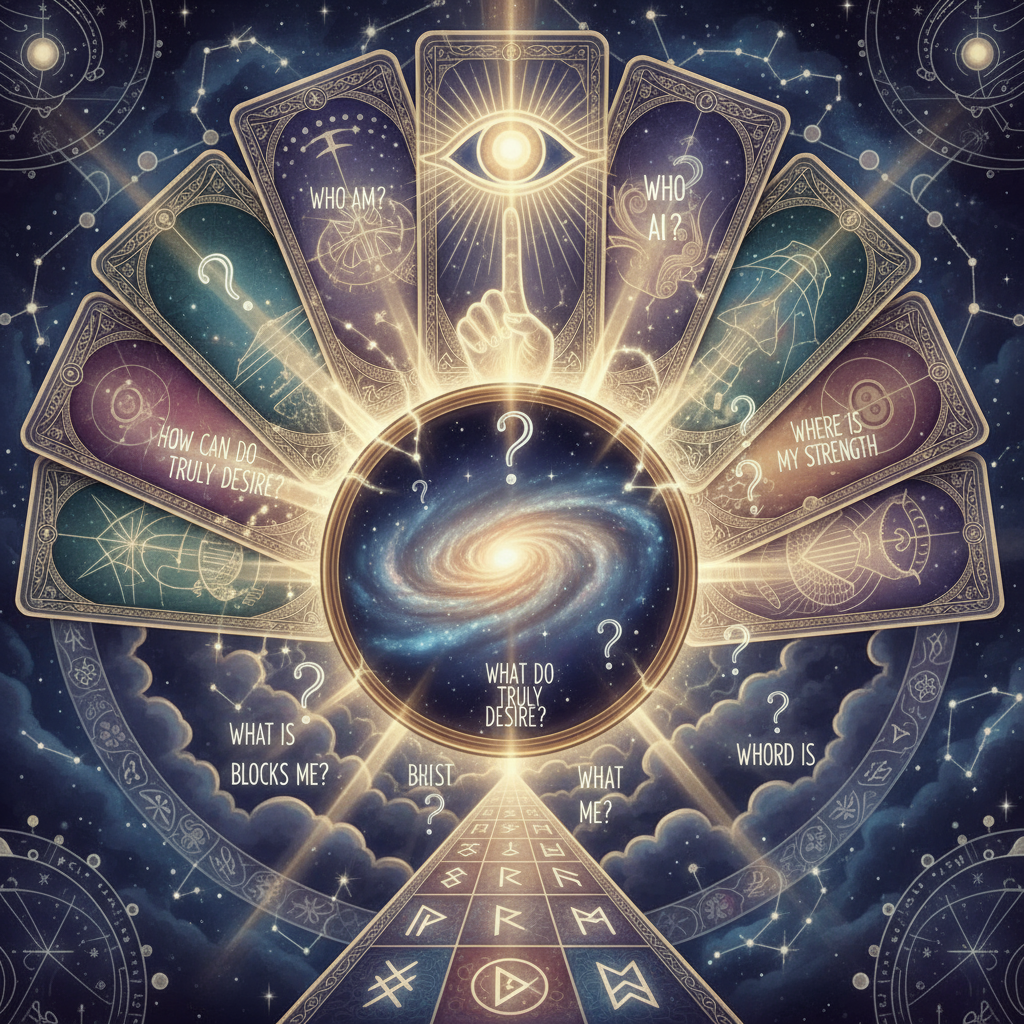 Your tarot deck is not a magic crystal ball; it is a mirror, a guide, and sometimes an eye-opener. The level of the answers you receive depends on the level of questions you ask. Beginners who ask open, prudent, thoughtful, and reflective questions find out that tarot doesn’t only tell, it empowers.
Your tarot deck is not a magic crystal ball; it is a mirror, a guide, and sometimes an eye-opener. The level of the answers you receive depends on the level of questions you ask. Beginners who ask open, prudent, thoughtful, and reflective questions find out that tarot doesn’t only tell, it empowers.
When you ask questions such as these, you are not merely receiving instructions; you are also learning how to read the energy around you, discover your patterns, and discover opportunities where previously you only saw interference. Tarot is not about fortune but about clarity, awareness, and self-development.
So shuffle your deck, take a deep breath, and ask boldly. The cards are ready to speak—but only if you ask the right questions.




